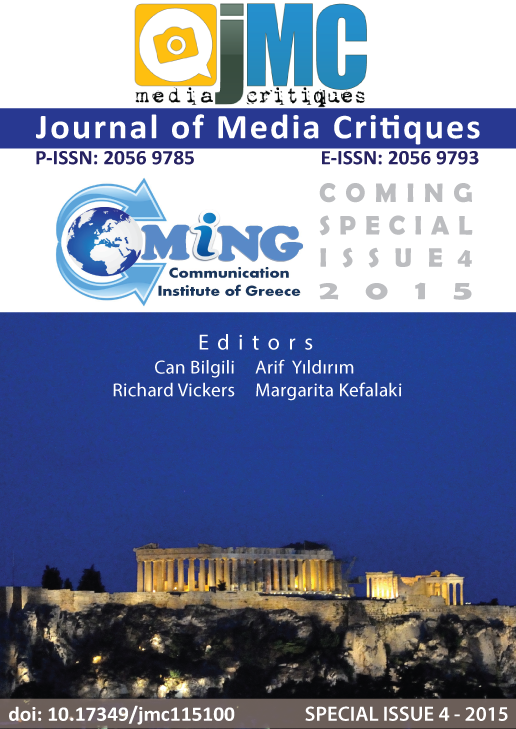SAME BUT DIFFERENT: PERCEPTIONS OF INTERPERSONAL ARGUING IN TWO ARABIC POPULATIONS (UAE & LEBANON)
SAME BUT DIFFERENT: PERCEPTIONS OF INTERPERSONAL ARGUING IN TWO ARABIC POPULATIONS (UAE & LEBANON)
Author(s): Chrysi Rapanta, Dany BadranSubject(s): Regional Geography, Culture and social structure , Theory of Communication, Social differentiation, Social Theory, Social Informatics, Sociology of Culture
Published by: University of Lincoln and World Experience Campus Foundation
Keywords: Argumentation; culture; Middle East; perceptions; grounded theory;
Summary/Abstract: In a region characterized by internal socio-political differences and instabilities, such as the Middle East, the need to study and understand interpersonal arguing is becoming more and more critical. Our focus is on the perception of two socially different populations, the Emirati and the Lebanese, regarding their everyday argumentative interactions. Our sample consisted of 50 Lebanese and 34 Emirati young adults, all of them University students in different majors. The standardised interview used aimed at identifying how people define and perceive the process and outcomes of arguing with one another in different contexts. The Lebanese sample displayed a major understanding of efficient argumentative processes, while the Emiratis seemed more susceptible to the power of the speaker as a prerequisite to success in argumentation. Moreover, the Lebanese mainly defined argument as a process of learning from each other, whereas the Emirati mostly defined it as a fight or strong disagreement leading to an outcome.
Journal: Journal of Media Critiques
- Issue Year: 1/2015
- Issue No: 2
- Page Range: 119-131
- Page Count: 13
- Language: English

